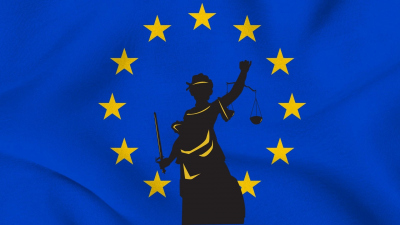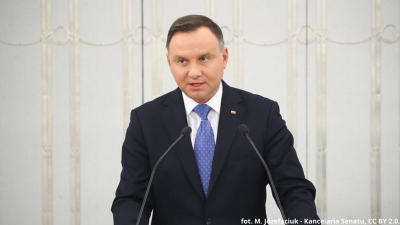
The Helsinki Foundation for Human Rights has submitted a legal opinion in a case concerning the rules of transcription of birth certificates of children born by surrogate mothers.
The request for an advisory opinion from the ECtHR was made by the French Court of Cassation. “This is the first time when the procedure laid down in Protocol 16 to the ECHR has been applied. This procedure enables highest national courts to ask the ECtHR for an advisory opinion on the case pending before them”, explains Dr Marcin Szwed, HFHR’s legal expert. Although the case relates to France, the Foundation decided to submit a legal opinion because of the impact that the ECtHR’s judgment in this case may also have on the situation in Poland.
Surrogacy can be defined as the conclusion of a contract whereby a woman (surrogate mother) consents to in vitro fertilisation and childbirth and waives her parental rights to the child in favour of the host parents. This procedure raises much controversy as some claim that it is an unacceptable form of human trafficking, especially when payment is involved. For this reason, surrogacy is banned in many countries and in many jurisdictions, only a woman who has given birth to a child is considered to be a “mother”. Against such a background, doubts arise as to how countries that do not allow surrogacy should deal with birth certificates issued for children born by surrogates in a jurisdiction where the procedure is legal. In particular, it is not clear whether it is permissible to refuse to transcribe such a document and thus to enter it in a national civil registration system.
This is the very situation referred to in the request of the French Court of Cassation. The Court asks whether, in the light of Article 8 ECHR (which guarantees the right to privacy), it is permissible to transcribe a foreign document by recording the child’s biological father as the “legal” father while describing the mother as “unknown”. The Court also seeks to ascertain whether the answer to the first question depends on whether the child is biologically related to the host mother (the donor of the subsequently fertilised oocyte). In addition, the court asks the ECtHR to determine whether, in the event that such a partial transcription infringes Article 8 ECHR, that infringement may be rectified by permitting the host mother to adopt the child.
In its legal opinion, the HFHR described the status of surrogacy under Polish law and presented the latest jurisprudence of administrative courts in this area. Polish laws do not directly prohibit surrogate motherhood, however, according to the Family and Guardianship Code, only the woman who gave birth to a child is, legally speaking, this child’s mother. Furthermore, it is recognised that all surrogate mother contracts contravene basic principles of the Polish legal order and are therefore void by law. For this reason, in the past, the courts refused to transcribe foreign birth certificates of children born by surrogate mothers. However, the recent case law of the Supreme Administrative Court has contributed to a significant evolution in approach to the matter at hand. In several judgments delivered in 2018 the Supreme Administrative Court took the view that it is unacceptable to refuse to transcribe the birth certificate of a child born by a surrogate as such a refusal would violate the rights of the child guaranteed by the Constitution and international law, including the right to citizenship and the right to obtain identity documents. The same legal interpretation was presented by the Supreme Administrative Court in relation to the transcription of birth certificates in which persons of the same sex appear as parents of the child and to the confirmation of the citizenship of such children.
The Foundation also described the practical problems that arise during the execution of these judgments, in particular, the theory of “partial transcription” proposed by a French court, which involves recording only the biological parent in the national civil registration system. According to the HFHR, the exclusion of the other parent can sometimes interfere with the right to the protection of the child’s privacy and family life. This is because if the child is raised since birth by the host mother and a strong emotional bond has developed between them, then the child will perceive the host mother as his true mother, the only one they have. In such a situation, a legal denial of her motherhood may negatively affect the child’s sense of identity. In addition, this may also have implications in the area of civil law (e.g. inheritance after the host mother) or public law (e.g. inability to acquire the nationality of the host mother).
The Foundation also emphasised that legal and ethical doubts about surrogacy cannot justify taking an action that would jeopardize the interests of the child. The above conclusion is a direct consequence of the fact that the principles of dignity and equality prohibit discrimination against a child on the grounds of the method of the child’s conception and birth. The child cannot, therefore, be punished for the behaviour of their parents or treated as a means to achieve the goal of discouraging the conclusion of surrogate contracts.
The HFHR accordingly took the view that if a child was brought up by the biological father and the host mother from birth, the emotional bond arising between them is as strong as that existing in biological families, there is a foreign birth certificate stating that the child was born by a surrogate mother and legally registered abroad, and also if a refusal to recognise the motherhood of the host mother is not justified by the best interests of the child, the certificate should be transcribed in full, i.e. include the particulars of both the father and the host mother.


